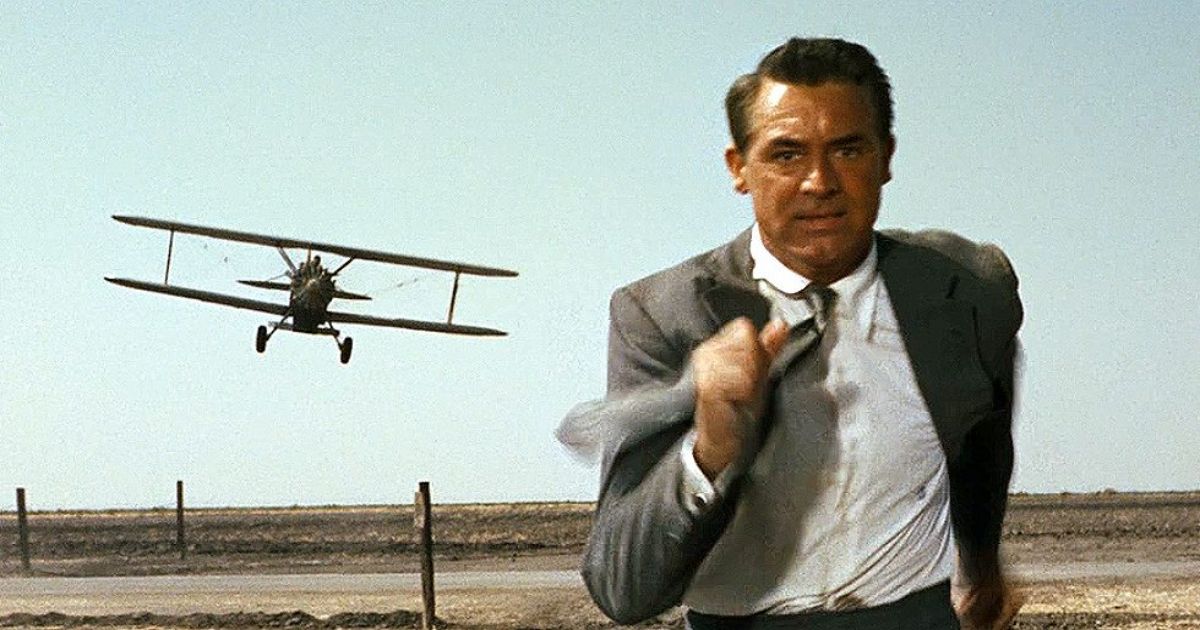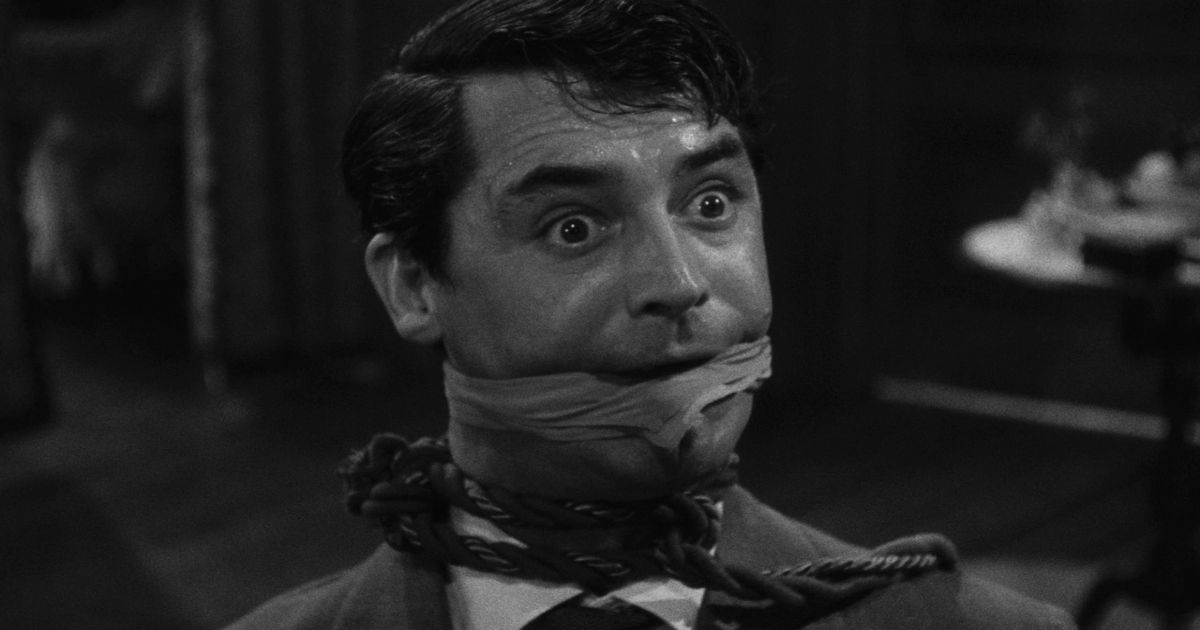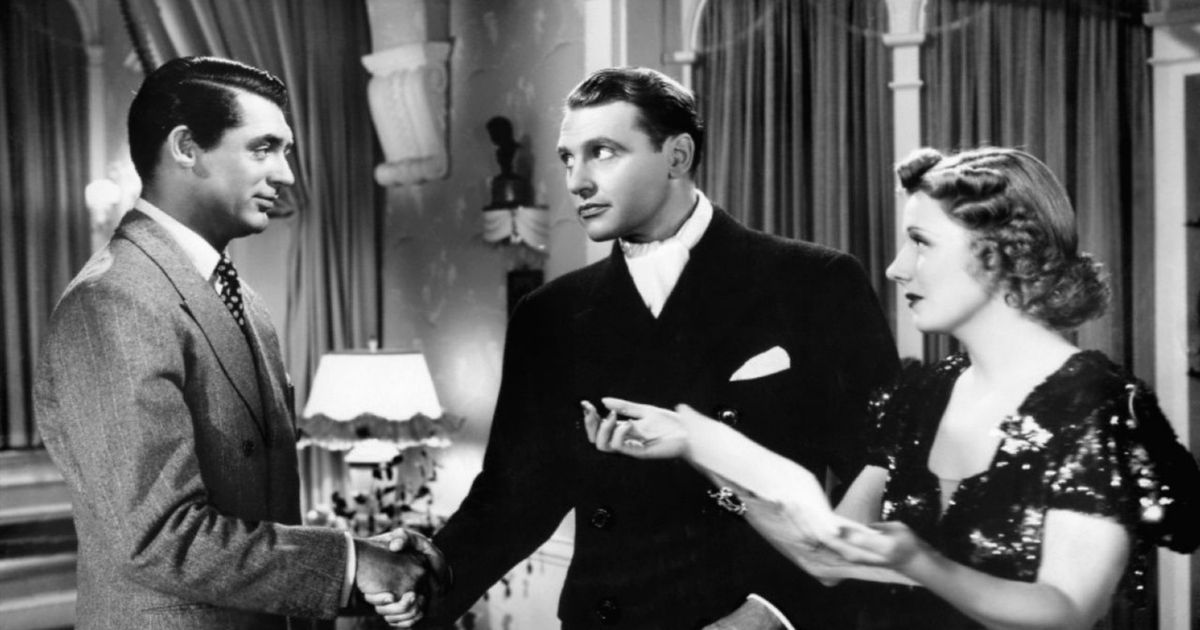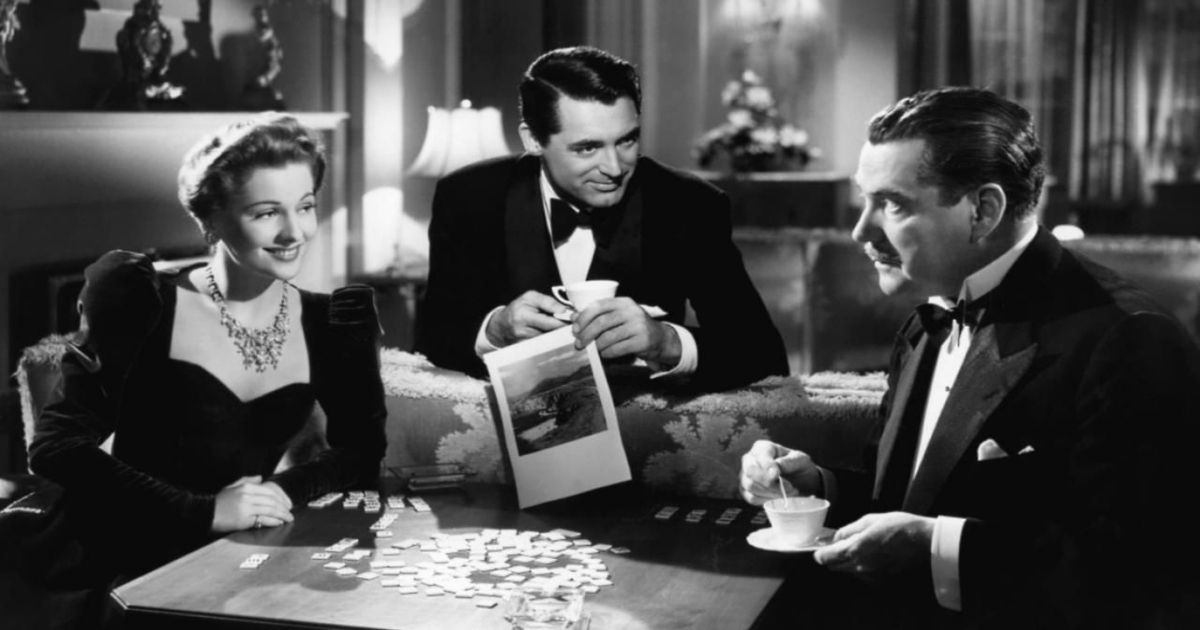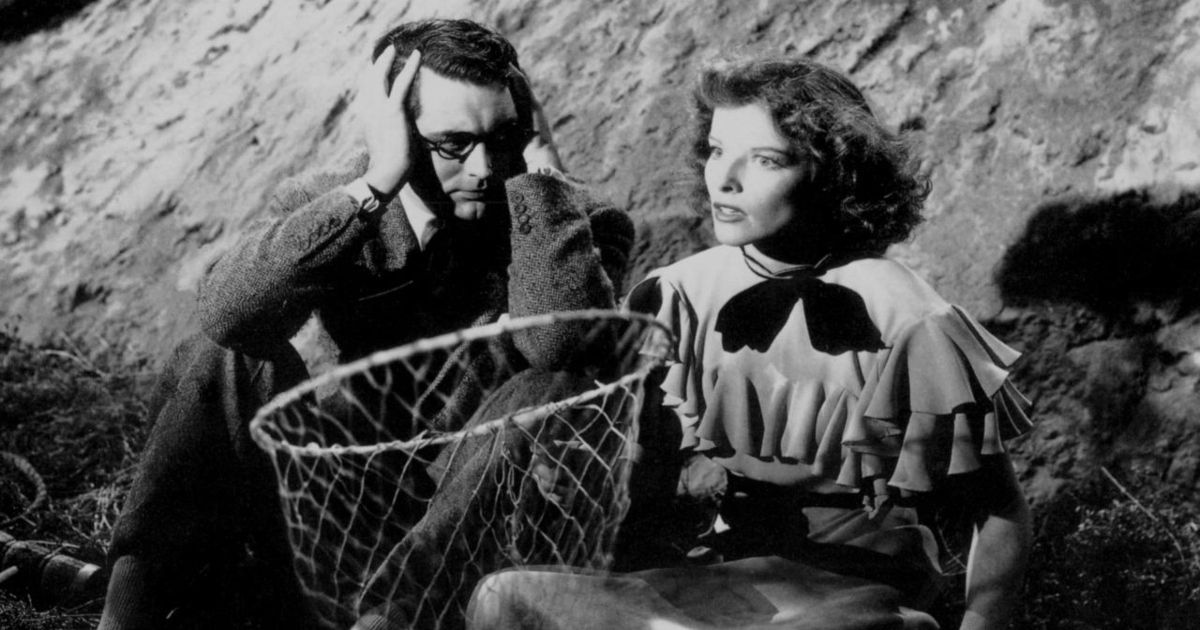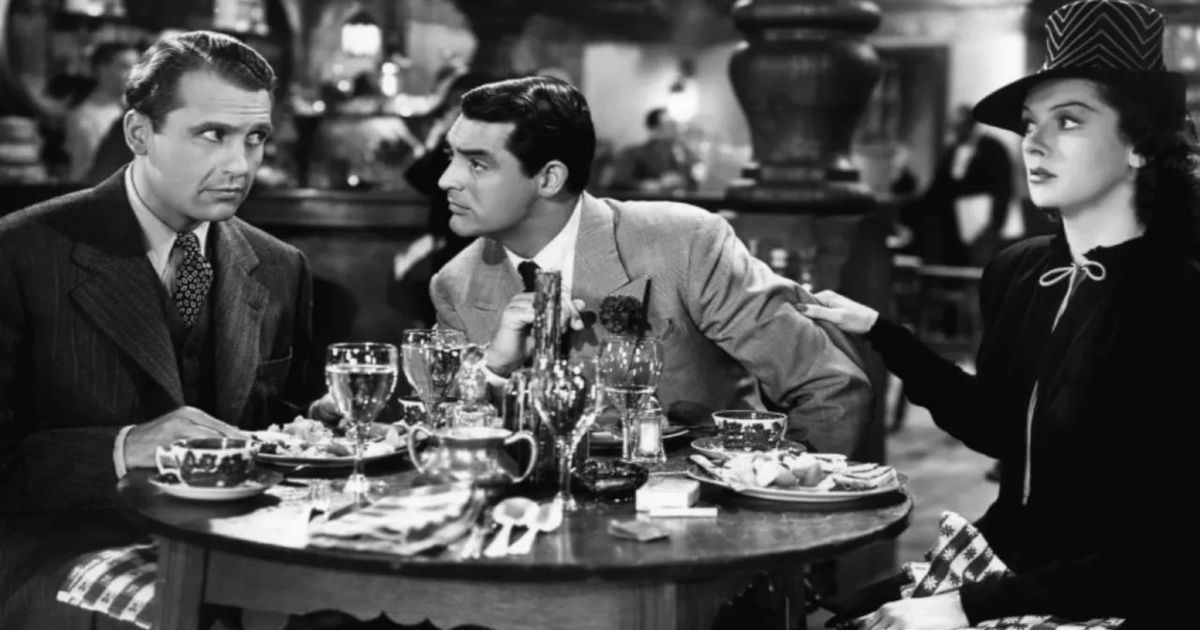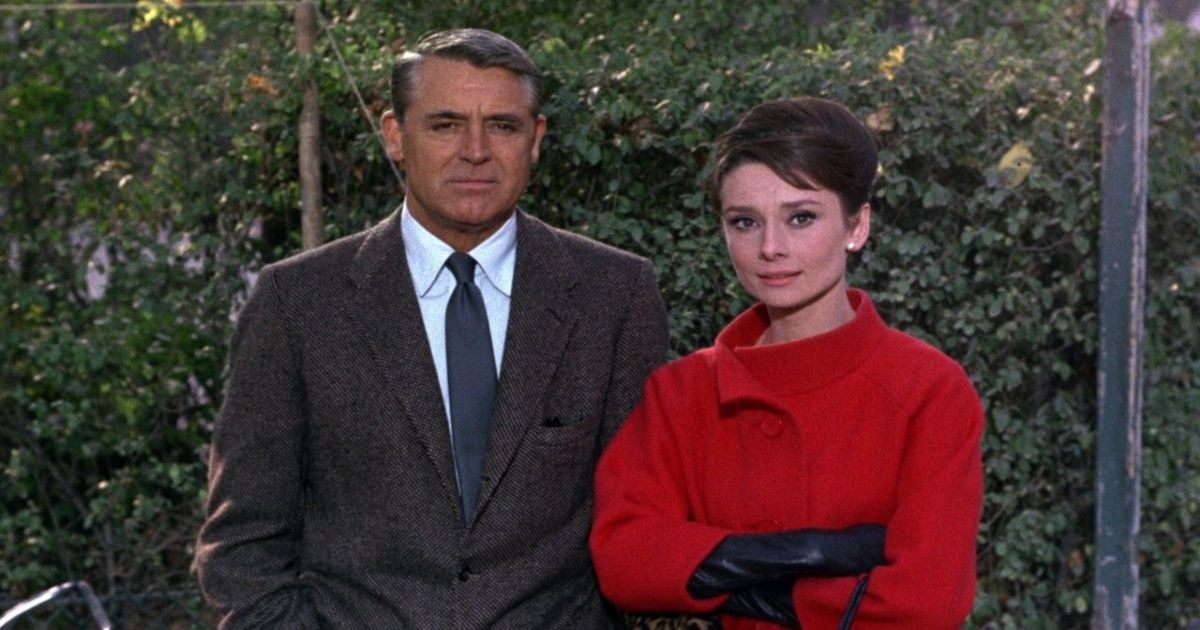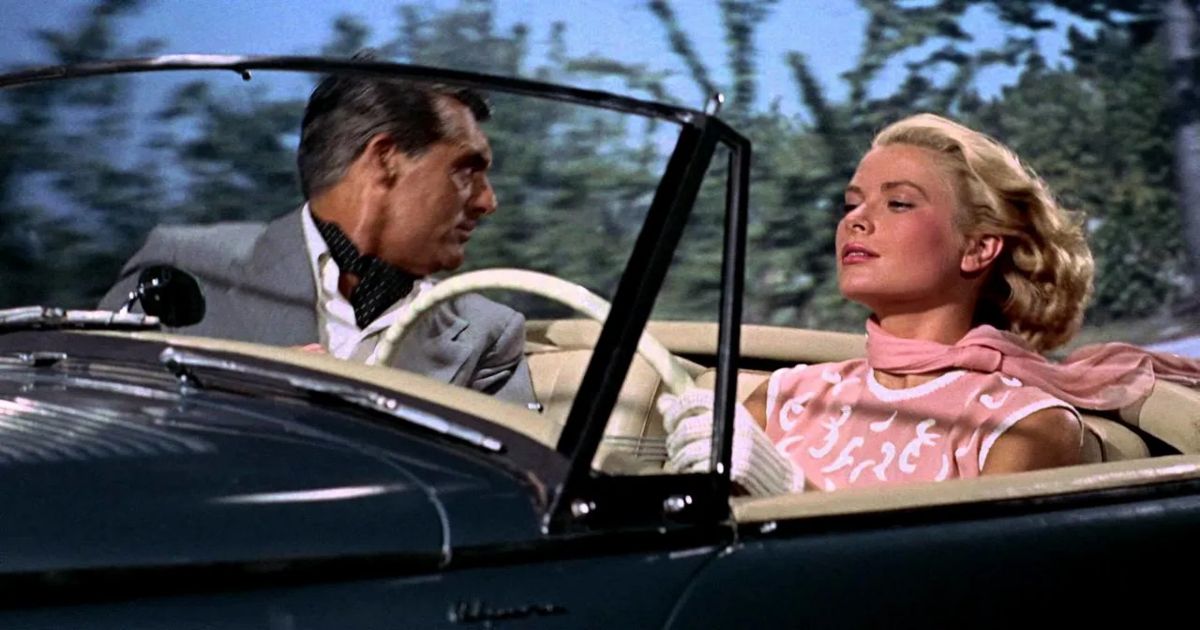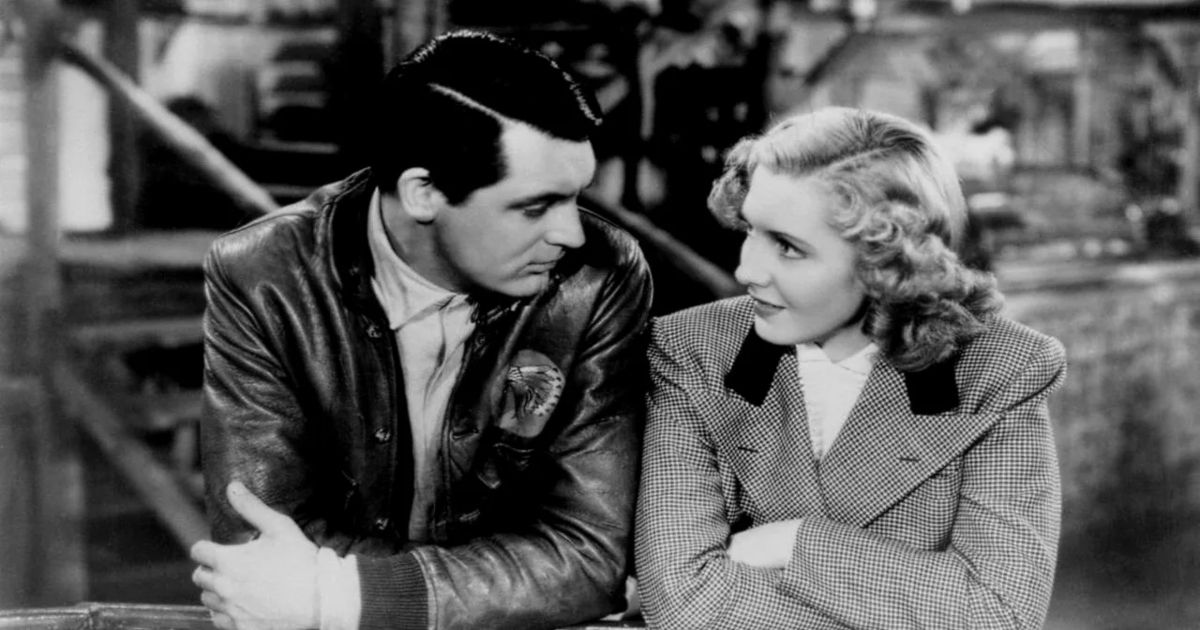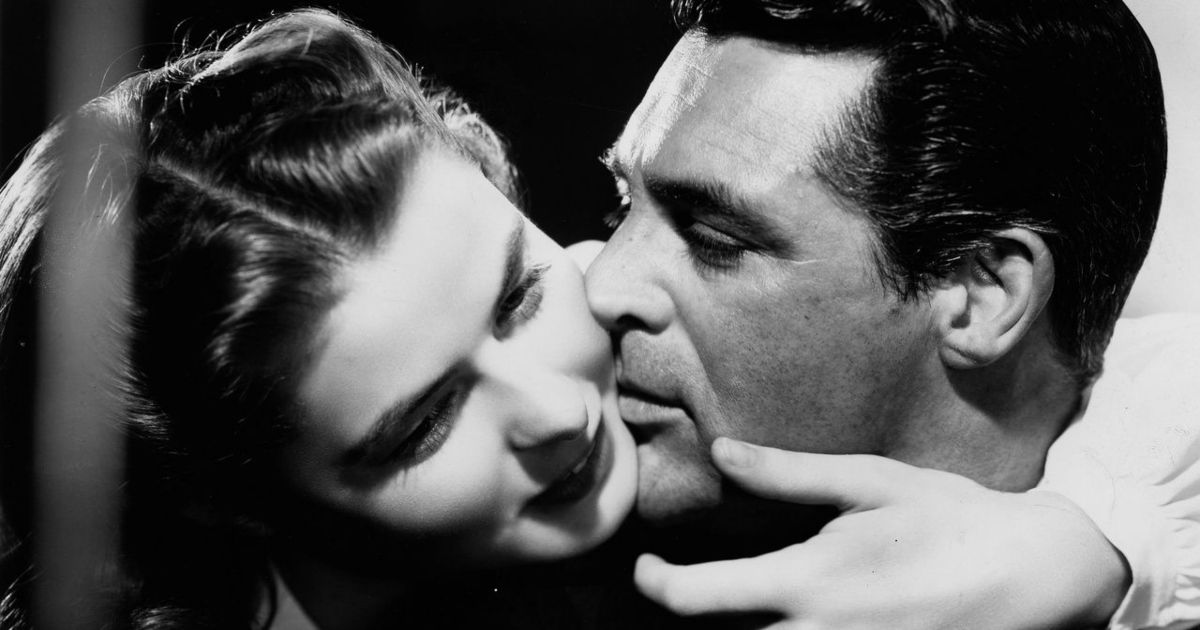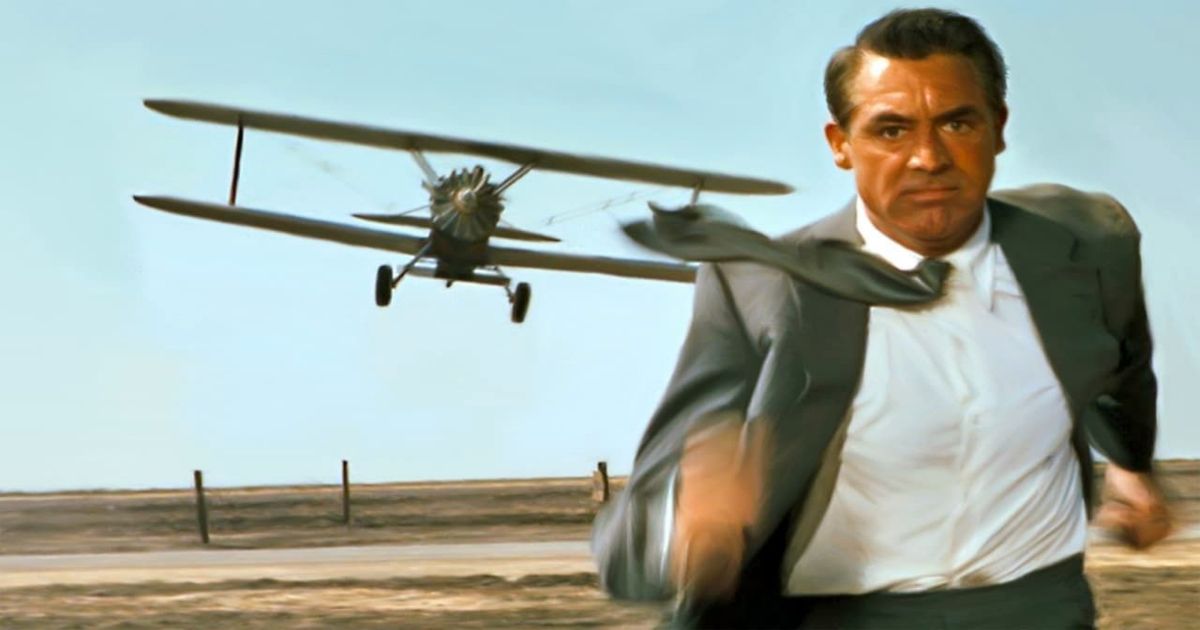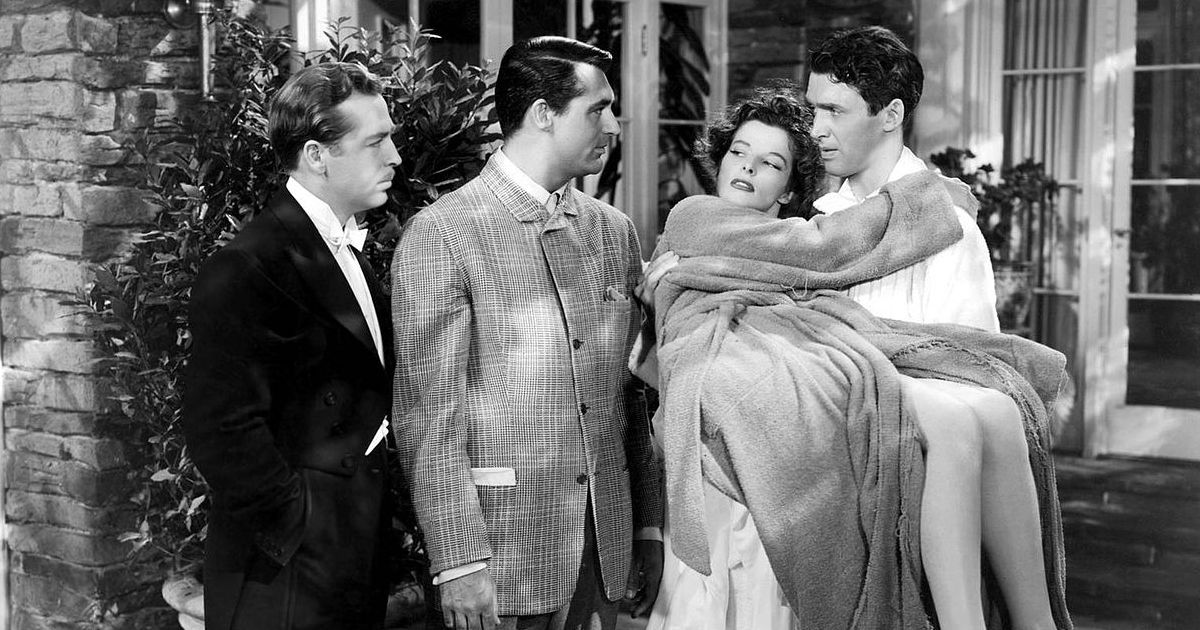Regarded as one of classic Hollywood’s most debonair leading men, the brilliant actor Cary Grant starred in a slew of unforgettable cinematic masterpieces. The esteemed British-American actor was famous for his transatlantic accent, tremendous sense of comedic timing, and impeccable range as a performer; nobody would have guessed a person originally named Archibald Leach would be so debonair and charming.
Grant established himself in vaudeville in the 1920s before moving to the United States in the 1930s to pursue a career in Tinseltown, making his film debut in the 1932 comedy This Is the Night. From that moment forth, the legend went on to appear in noteworthy comedies, dramas, thrillers, and crime flicks, striking up a professional friendship with both the “Master of Suspense” Alfred Hitchcock and the esteemed director Howard Hawks.
Updated February 2nd, 2023: If you're a fan of the dashing leading man, you'll be happy to know that this article about Cary Grant has been updated with additional content and films.
Grant starred in some of the best romantic comedies ever made, like The Philadelphia Story, His Girl Friday, and The Awful Truth as well as remarkable thrillers such as Hitchcock’s Notorious and North by Northwest; his star-making performances in such pictures cemented his status as a definitive leading man and all-around hot commodity in Hollywood. Grant’s exceptional on-screen career spanned nearly 35 years, with the acting great retiring from the cinema in 1966 at the age of 62 after starring in over 70 films. These are the best Cary Grant movies.
11 Arsenic and Old Lace
Cary Grant appears as a marriage-phobic writer who ironically falls head-over-heels for his beautiful neighbor in the smash hit 1944 black comedy Arsenic and Old Lace, which follows the former nuptial denouncer Mortimer Brewster as he and his new wife return to his Brooklyn family home to share the unexpected yet exciting news with his loved ones. The smitten newlyweds are in for quite the shock when Mortimer discovers a body hidden in the ancestral home, causing him to make the startling realization that his two seemingly sweet aunts are secretly murderers with a penchant for killing old, lonely men.
The outrageously hilarious farce is adapted from the Joseph Kesselring play of the same name, and Grant took on the role after original star Bob Hope turned it down due to scheduling conflicts; he went on to donate the entirety of his $100,000 salary to wartime efforts and charities. Though he was able to show off his silly side in the macabre comedy and earned rave reviews by critics, Grant felt his acting was over the top and felt that fellow silver screen star James Stewart could have been a better job.
10 The Awful Truth
The 1937 Oscar-winning screwball comedy The Awful Truth stars the great Cary Grant and Irene Dunne as a distrustful wealthy married couple who begin divorce proceedings, only to sabotage one another’s potential romantic relationships. The picture is based on the stage production by playwright Arthur Richman, and director Leo McCarey believed that, with the Great Depression being in its seventh year, the breezy comedy would be a hit with audiences, whom he felt would enjoy seeing a flick about rich people having troubles.
McCarey reportedly did not care for Grant, who had mocked the director’s mannerisms in the comedy, but nonetheless recognized the actor’s talents and encouraged him to improvise his lines and draw upon his skills developed in vaudeville. The Awful Truth was a critical and commercial hit, and began what film critic Benjamin Schwarz called “the most spectacular run ever for an actor in American pictures” for Grant.
9 Suspicion
In the first of Cary Grant’s four collaborations with Alfred Hitchcock, the movie star appeared alongside Joan Fontaine in the 1941 romantic psychological thriller Suspicion. In the film Grant portrays a seemingly charming playboy who attracts the attention of a romantically inexperienced woman, and after the pair are married she realizes not only is he a penniless con-man, but she also suspects he is planning to murder her.
Based on Francis IIe’s story Before the Fact, the thriller illustrates how a novel’s plot can be heavily altered in the transition to film by reversing the author’s original intention. Hitchcock was forced to alter the ending of Suspicion, due to the studio being concerned Grant’s “heroic” image would be tainted if he was depicted as a murderer on screen. For her role, Fontaine won the Academy Award for Best Actress and surprisingly is the only Oscar-winning performance in a Hitchcock picture.
8 Bringing Up Baby
Howard Hawks' critically-acclaimed 1938 screwball comedy Bringing Up Baby features sensational performances by Cary Grant and Katharine Hepburn, with their sizzling chemistry and their delightfully endearing banter making the exciting picture a beloved rom-com favorite. When straight-laced paleontologist David Huxley finds himself openly pursued by the free-spirited heiress Susan Vance, the anxious scientist wants nothing to do with the chaotic adventuress but she simply refuses to take the hint and wears him down with her charisma and gumption.
Though it failed to make a splash with moviegoers upon its initial release, Bringing Up Baby found new life in the '50s when it began airing on television and went on to achieve universal praise for its zany humor, spellbinding performances and splendidly absurd misadventures of the exceptional leads. The picture marked the second of four collaborations between Grant and Hepburn, and went on to land on the American Film Institute's 100 greatest American films of all time ranking.
7 His Girl Friday
Heavily cited as an archetype of the screwball comedy genre, Howard Hawks’ 1940 flick His Girl Friday features the talent of Cary Grant and Rosalind Russell, and follows newspaper editor Walter Burns, who uses every trick in the book to prevent his ace reporter ex-wife Hildy Johnson from remarrying. Walter suggests they cover one final story together, the case of notorious murderer Earl Williams, as he desperately attempts to win back her love and affection.
The choice to cast Grant in the picture was almost instantaneous, and Russell was ultimately given the role of Hildy after actresses such as Katharine Hepburn, Ginger Rogers, and Irene Dunne turned down the part. Hawks encouraged his performers to improvise and be spontaneous, and he was determined to break the record for the fastest film dialogue, at the time held by The Front Page. The comedy has since been noted for its surprises, humor, and rapid, overlapping dialogue, while Grant and Russell’s chemistry was praised for their “great verbal athleticism.”
6 Charade
Silver screen icons Cary Grant and Audrey Hepburn teamed up for the 1963 rom-com mystery Charade, an underrated Stanley Donen masterpiece that is one of Hepburn's best movies. The film centers on Regina Lampert as she is relentlessly pursued by several men vying to get their hands on the fortune her murdered husband had stolen. She meets the dashing Peter Joshua while on vacation in the French Alps, and ends up going on the run with the mysterious man while she begins to question his true motives and identity.
The actor was sensitive about the 25-year age difference between him and the starlet (Grant turned 59 during filming while Hepburn was 33) and to address these concerns, filmmakers agreed to make the character of Regina the pursuer in the relationship. Charade has been described as “the best Hitchcock movie that Hitchcock never made,” and garnered widespread acclaim by critics for its impressive screenplay and dazzling chemistry between Grant and Hepburn, while Walter Matthau gives an excellent early performance as a CIA agent.
5 To Catch a Thief
For Alfred Hitchcock’s 1955 romantic thriller To Catch a Thief, Cary Grant appears as retired cat burglar John Robie, who must save his reformed reputation by catching an imposter preying on wealthy tourists of the French Riviera. John captures the attention of Frances Stevens (the lovely Grace Kelly), the daughter of a rich widow who begins to suspect the man of thievery when her jewels are stolen.
During production of the picture, Grant and Kelly got along well with one another, and the actor would later say working with her was one of the most enjoyable experiences of his career and that Kelly was “possibly the finest actress I’ve ever worked with.” Grant received high praise for his performance in the thriller, with critics complimenting the star for his suave and handsome mannerisms and appearance; the Los Angeles Times called the dynamic duo “ideal in the romantic leads” and the dialogue “daring but delightful.”
4 Only Angels Have Wings
The 1939 adventure drama Only Angels Have Wings is set at a remote South American trading post, and focuses on the manager of an air-freight company who is forced to risk his pilots’ lives while vying for a major contract. Cary Grant appears as head pilot and manager Geoff Carter, who is convinced by the beautiful American showgirl Bonnie Lee to not embark on a flight in violent weather conditions, a decision that saves his life but condemns those of his fellow pilots.
The film features the additional talent of Jean Arthur and Thomas Mitchell, and marks the first major role for Rita Hayworth, who would later become known as “The Love Goddess” in the cinema. Arthur would later rave about working with Grant, revealing in an interview, “I loved sinking my head into Cary Grant’s chest.” Only Angels Have Wings is often regarded as one of director Howard Hawks’ best creations.
3 Notorious
Starring a sensational Cary Grant in one of his frequent actor-director collaborations with Hitchcock, along with a sultry Ingrid Bergman, the 1946 spy noir Notorious follows U.S. government agent T.R. Devlin, who enlists the help of the daughter of a German war criminal, Alicia Huberman, to infiltrate a Nazi organization.
His plan becomes complicated when the pair fall in love, despite Alicia’s instruction to seduce the leader of the nefarious group. Grant and Bergman share one of the longest kiss scenes in film history, locking lips on and off in an extreme close-up for an unprecedented two-and-a-half minutes.
Biographer Patrick McGilligan wrote that “Hitchcock rarely managed to pull together a dream cast for any of his 1940s films, but Notorious was a glorious exception,” and the pairing of the cinema legends resulted in a box office slam dunk for the thrilling picture. Grant’s performance was “underlined how far his unique qualities as a screen actor had matured in the years since The Awful Truth,” and helped make the Hitchcock classic one of the director’s finest and most achingly romantic.
2 North by Northwest
Considered by many to be one of the greatest films of all time, Alfred Hitchcock’s 1959 spy thriller North by Northwest is a harrowing but self-aware tale of mistaken identity, with the innocent Roger Thornhill being pursued across the United States by agents of a secret organization who are trying to prevent him from foiling their plan to smuggle important microfilm out of the country. The film’s screenwriter Ernest Lehman wanted to write “the Hitchcock picture to end all Hitchcock pictures,” while the director had been working on the story for the thriller for nearly nine years prior to meeting Lehman.
After its first screening, reviewers for both The New Yorker and The New York Times immediately hailed North by Northwest as a masterpiece of comedic, sophisticated self-parody, and garnered praise for its gripping plot, dynamite performances, and nerve-wracking suspense. The New York Times singled out Grant’s portrayal as outstanding, remarking that the actor “was never more at home than in this role of the advertising-man-on-the-lam” and handled the part “with professional aplomb and grace.”
1 The Philadelphia Story
George Cukor’s popular romantic comedy The Philadelphia Story stars a brilliant combination of Cary Grant, Katharine Hepburn, and one of the best Jimmy Stewart movie performances. The 1940 film centers on a socialite who finds her upcoming nuptials complicated by the simultaneous arrival of her ex-husband and a tabloid magazine journalist. The picture is regarded as one of the best examples of a comedy of remarriage, a popular genre of the 1930s and 1940s in which a couple divorce, have romantic dalliances, and ultimately end up reconciling and remarrying; this device was useful due to the depiction of extramarital affairs being blocked by the Production Code at the time.
Grant himself felt his performance was so strong in the rom-com that he was bitterly disappointed when he did not receive an Oscar nomination, especially since both Hepburn and Stewart did; the actor joked, “I’d have to blacken my teeth first before the Academy will take me seriously.” Despite never winning the coveted statuette, Grant’s portrayal in this film was heralded by audiences and critics alike, and the film remains one of cinema’s finest of its genre.

